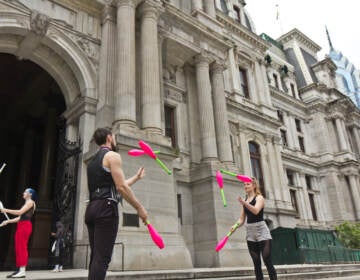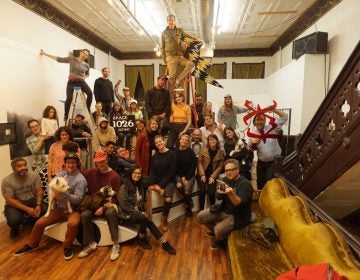In a Philadelphia first, artist collective becomes property owner
Space 1026, being forced out of its current location, becomes the first artist collective in Philadelphia to buy a building.
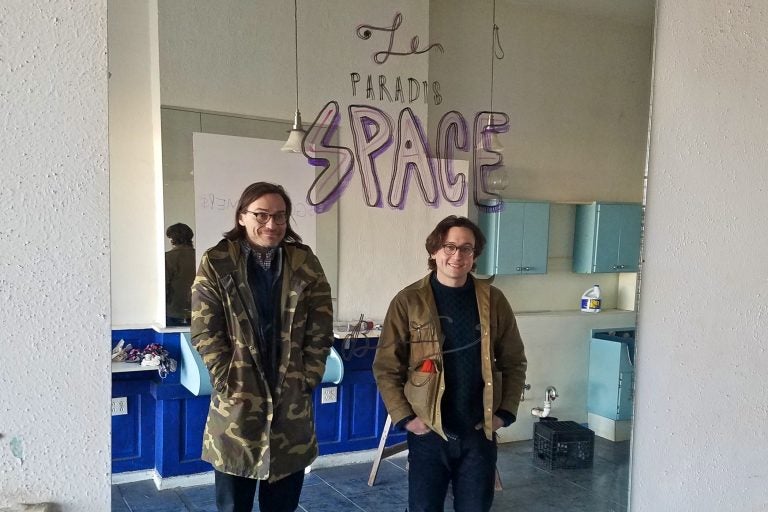
Members of the artists' collective Space 1026 Maximillian Lawrence (left) and John Armstrong, stand in the new space they purchased on North Broad Street, a former hairdresser's shop. (Peter Crimmins/WHYY)
One of the city’s longstanding artist collectives, Space 1026, will be forced out of its home of 20 years in Chinatown in May because of a dramatic rent increase.
Last week the collective bought a building on North Broad Street, next to the newly restored Met music venue, becoming the only artist collective in the city to own the building it occupies.
The building at 844 N. Broad St. is a former hair salon (Le Paradis Beauty) of 5,000 square feet and baby-blue décor that’s stuck in the 1970s. The former owner created floor-to-ceiling shelving by affixing a grid of plastic milk crates to the wall.
“Something we found comfort in was that the former owner was so economical and creative about storage, with so many milk crates and plastic buckets,” said John Armstrong, a Space 1026 member who was on the real estate search committee. “It feels like home because of the do-it-yourself storage methods.”
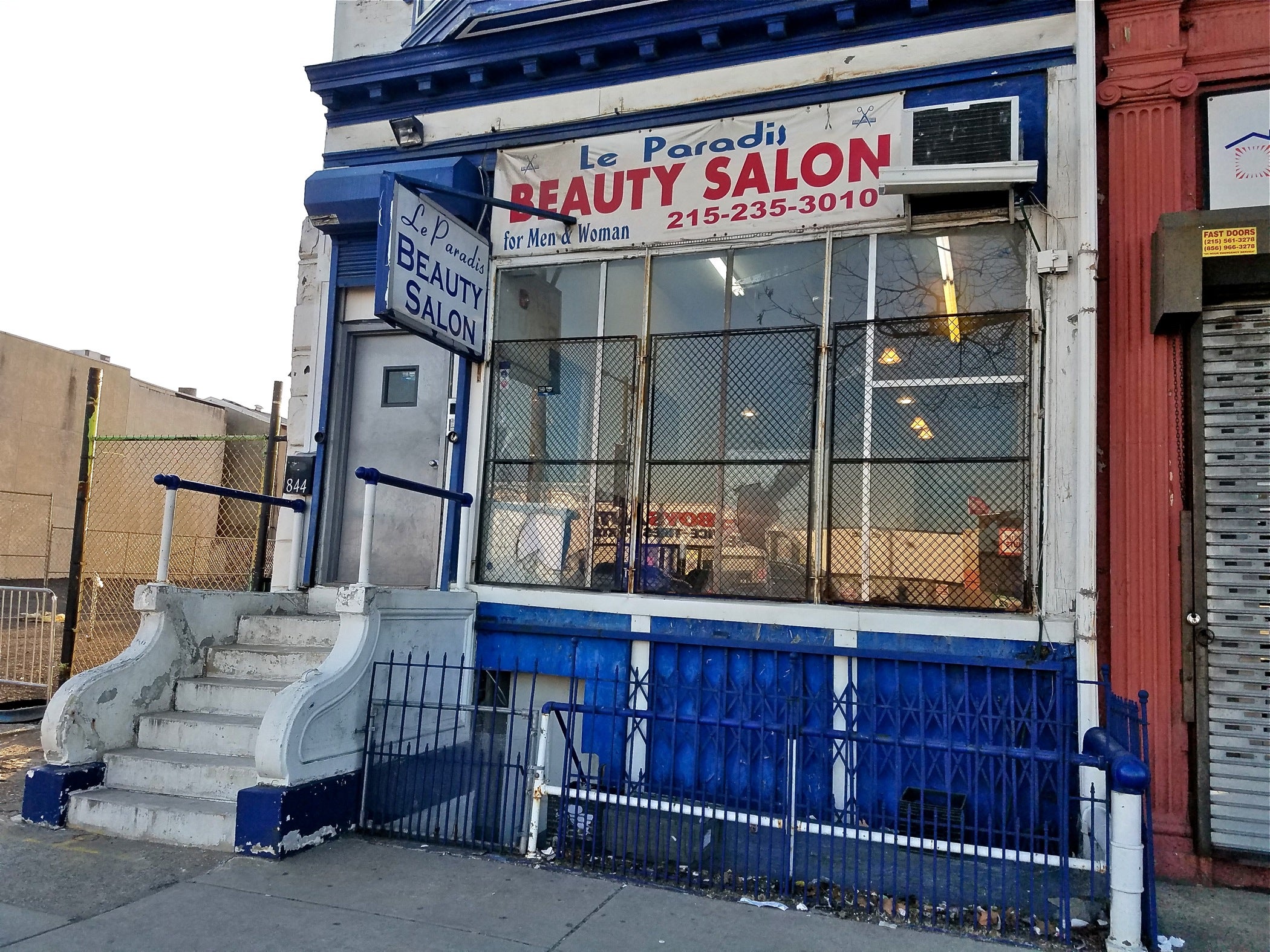
The Space 1026 collective imagines an exhibition gallery, a series of artist studios, and a basement event space for the kind of performances and events for which it’s known.
Buying a building is a big step for anyone, especially so for an artist collective with little organizational structure. On paper, the collective comprises 20 individuals who share resources and support one another artistically.
Officially, each member pays monthly dues, which gives them studio space and access to equipment.
Unofficially, they are a rotating family of misfits stumbling through a life of creativity.
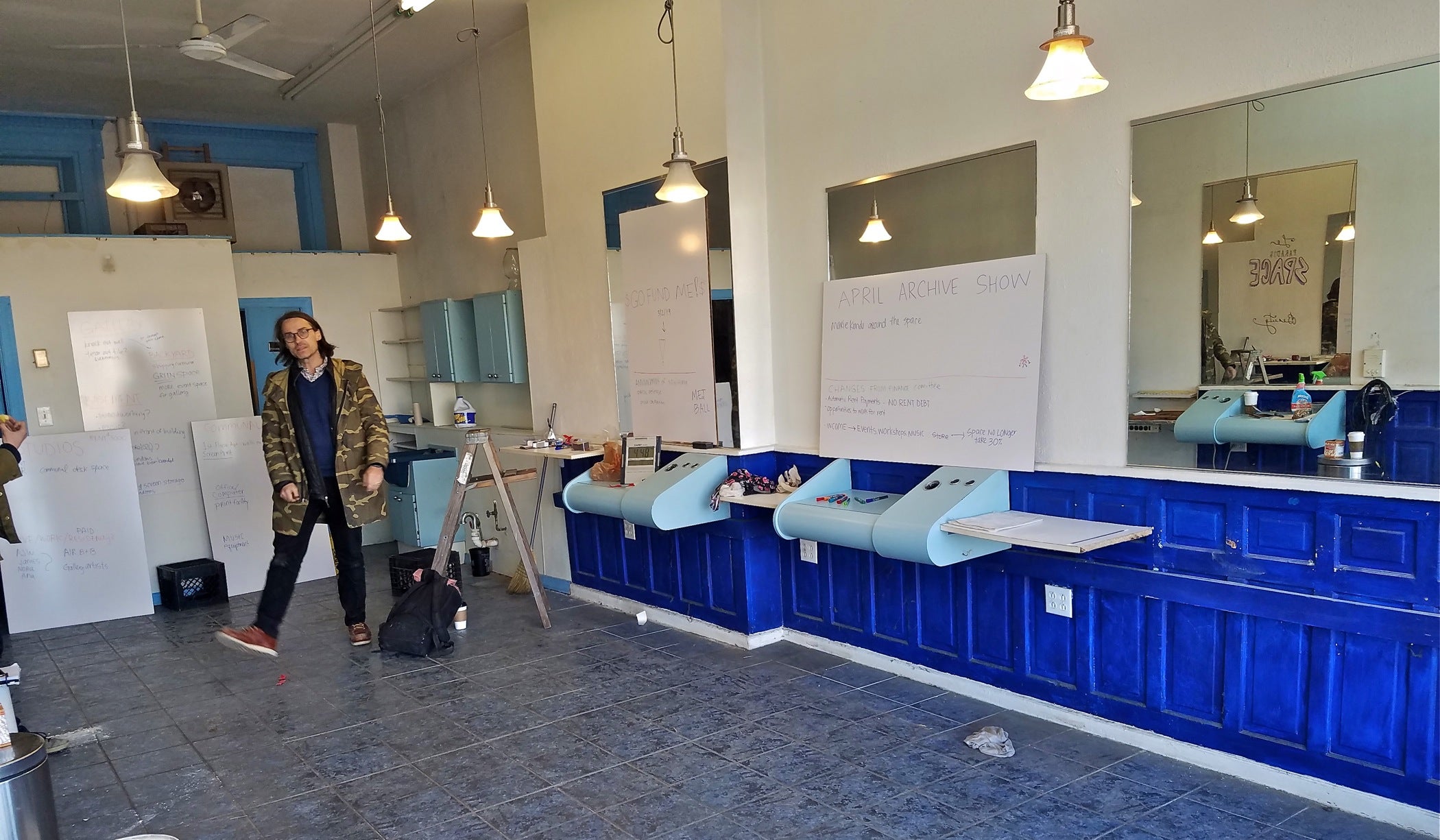
“We look out for each other. Straight up,” said founding member Maximilian Lawrence. “I’ve watched people’s work I thought was terrible, and now I’m so awed by them. My own work hasn’t progressed to the level they are at. That’s only because they were given the time and the freedom to make mistakes.”
Legally, the collective has no identifiable entity that can take on debt. It is not organized as a nonprofit with 501(c)(3) status.
“We’ve always been held together by duct tape and hot glue, and dumb positive attitudes and blind faith that it’s going to work out,” said Lawrence. “Until this round, which was different.”
A defining moment
Space 1026 was priced out of its home of two decades at 1026 Arch St. when that building was sold. The collective will vacate the building in May.
What might have been the death knell of the collective forced the members to do some soul-searching about their future. In order to stay together, they had to grow up and become property owners.
How can they do that? Technically the Space 1026 collective does not own the building.
“Founding members and some other members purchased the building on behalf of Space,” said Armstrong. “Part of our challenge now is figuring out how to get more members in that ownership, or have Space 1026 have a portion of the ownership.”
Space 1026 is diving into a mortgage with faith it will eventually figure out how to spread the risk across the whole collective, not just on the few people who signed the loan. Much depends on its members’ sense of goodwill toward each other.
To put this into context, the Vox Populi artist collective is even older than Space 1026 and is organized as a 501(c)(3) nonprofit, with a board and a salaried executive director. Over its 30-year run, it has bounced around to four downtown locations, uprooted at times by gentrification or eminent domain.
For decades, paying rent downtown was preferred because there was plenty of space to be had cheaply, with no liability of ownership. Until now the organization never seriously considered buying, due to the financial risk.
“We have historically had financial situations where, years ago, our director had to forgo his salary to pay the rent,” said board chair Debra Ward. “We obviously wouldn’t want to be in any situation if we have a mortgage.”
Downtown real estate has changed rapidly over 10 years. A few years ago, Vox was forced to vacate its space at 319 N. 11 St. after a fire, unsure if it would ever get back in. There was a fear that repairs to the fire damage would prompt the owner to redevelop the space for condos or higher-paying tenants.
That didn’t happen. Vox is now back in the building, but Ward says it hasn’t signed a long-term lease. To secure longevity in the heart of Philadelphia, artists like those at Vox are watching how Space 1026 takes on a financial risk it may not be fully prepared for.
WHYY is your source for fact-based, in-depth journalism and information. As a nonprofit organization, we rely on financial support from readers like you. Please give today.



